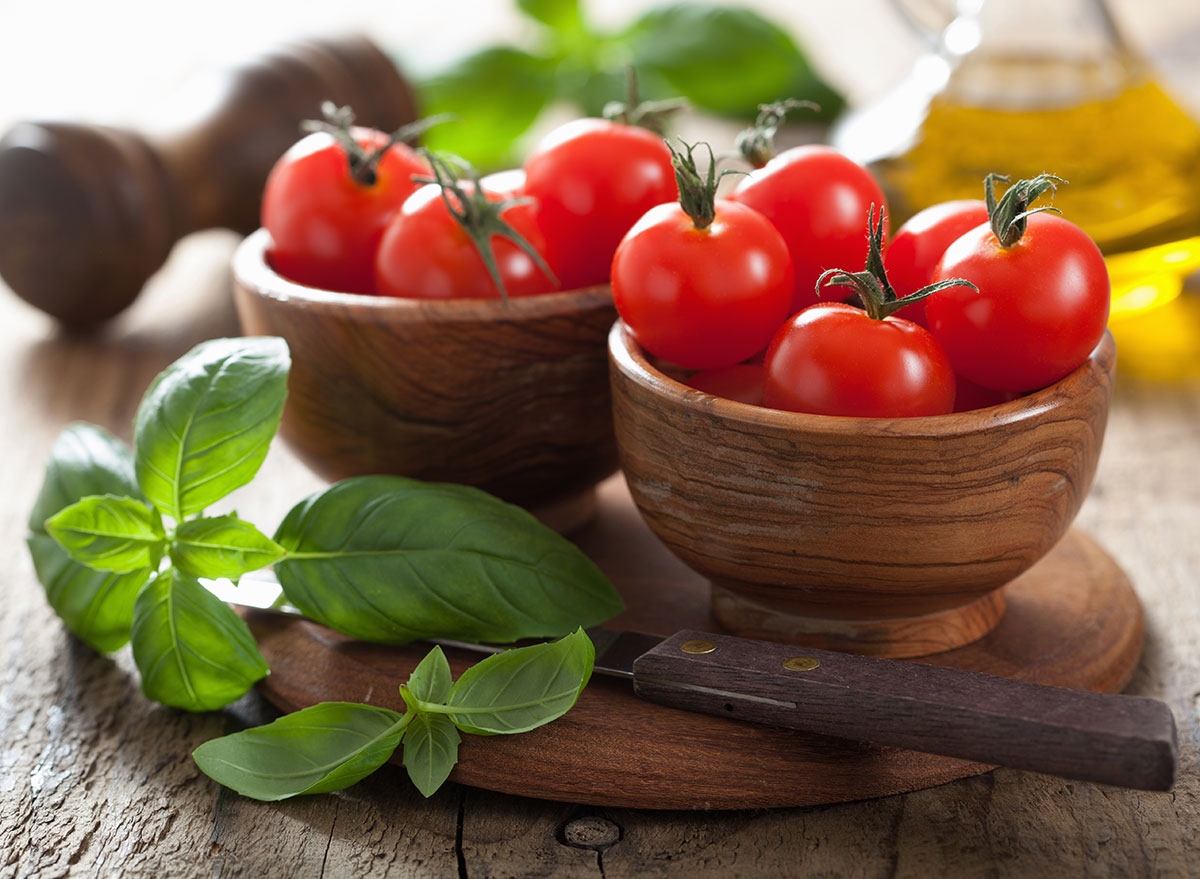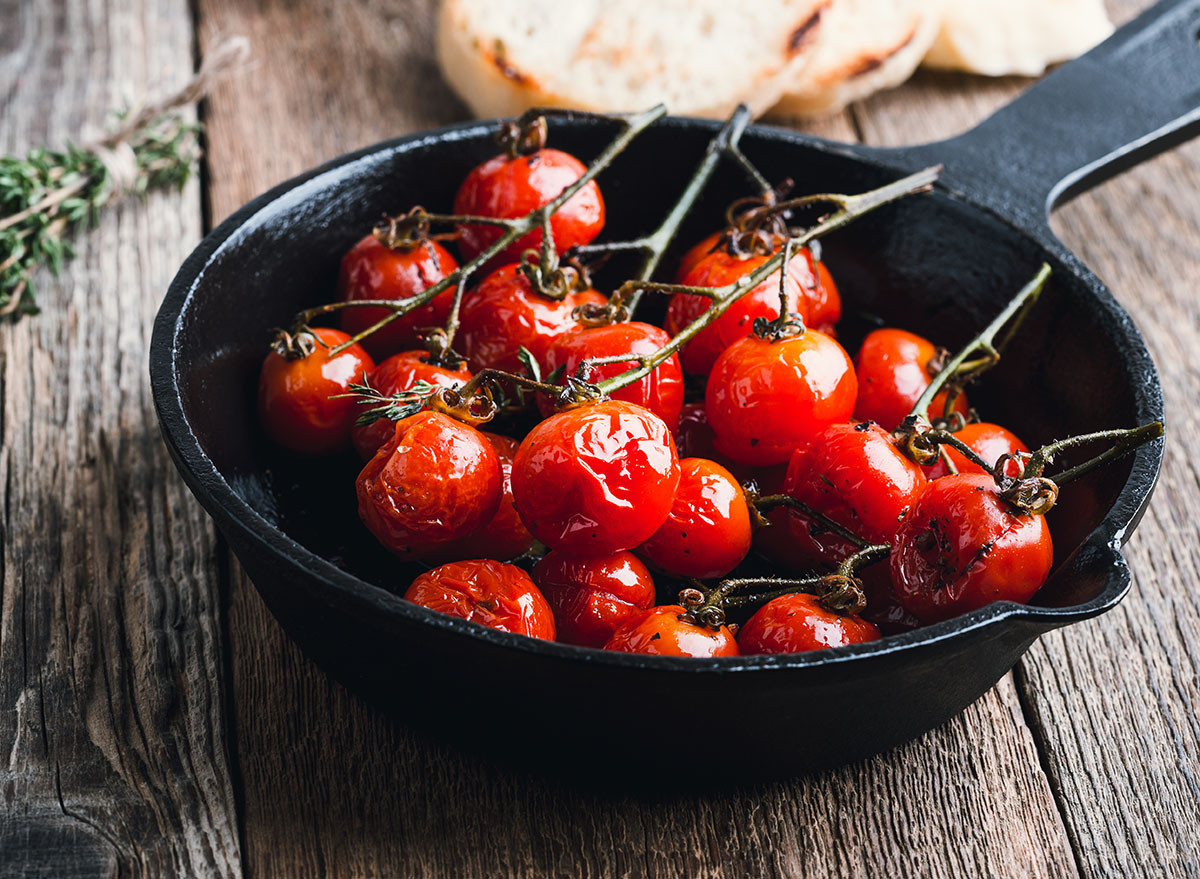Secret Side Effects of Eating Cherry Tomatoes, Says Science

Tomatoes are having a moment. A big moment.
At their most fresh, the red veggies fill plates from mid-summer through early October. Of course, they can be consumed year-round, but in the last few years, people have been all over their peak season, deeming it “tomato season.”
The opportunities to hop on this trend and incorporate tomatoes into your diet are almost endless. A fairly mild food, tomato slices can easily slide into any sandwich. To really celebrate the veggie’s taste, though, we prefer the pop of flavor provided by the most compact version: the cherry tomato.
As avid participants in knowing all the benefits of our favorite healthy foods, we thought it may be useful to consider: Is it possible to have too many? And what happens to your body when eating cherry tomatoes?
Read on for the lesser-known side effects of eating cherry tomatoes you may not know. Then, for even more healthy tips, be sure to check out our list of The 7 Healthiest Foods to Eat Right Now.
Your skin might improve.

Perhaps the most perfectly timed benefit of eating cherry tomatoes comes as a result of their high vitamin C content. With nearly 19 milligrams of the nutrient in just one cup, the value here is real.
Vitamin C is known to help improve your skin, but even more specifically, consuming the vitamin via your diet has been shown to help protect against UV-induced damage. So the moral of the story here is: eating cherry tomatoes actually could be keeping your skin safer during those last long beach days of summer.
Your blood pressure could be more regulated.

Vitamin C isn’t the only nutrient cherry tomatoes bring to the table. They are also notably high in potassium, packing over 350 milligrams into one cup—almost as much as a medium-sized banana.
While potassium has a range of fairly widely-known side effects, one that’s particularly relevant when it comes to tomatoes is the way the nutrient could help lower and regulate blood pressure. Because cherry tomatoes are often thrown in with salty dishes, their potassium levels are of even greater interest: it turns out, potassium helps offset high sodium intake.
Speaking of sodium, did you know about these “Healthy” Foods With More Sodium Than French Fries?
They could lower your risk of stroke.

One asset of tomatoes that is particularly well-studied is their lycopene content. Tomatoes are rich in lycopene, and the benefits of the nutrient are vast. Some studies have linked a lycopene-laden diet to a lower risk of prostate cancer, and more recently it has also been noted among researchers that lycopene is also correlated with a lower risk of stroke for men.
Your bones could be healthier!

But the benefits of lycopene don’t end at just lowering the risk of prostate cancer and stroke—this miracle nutrient is also credited with better bone health and a decreased risk of developing osteoporosis.
So, while the fall pumpkin fad may be making your taste buds happy, the tomato season trend could be improving your health in a long-term way.
You could experience acid reflux.

The only real downside, to cherry tomatoes? Like tomatoes of all kinds, they are high in both citric and malic acid. This means that if you’re sensitive to acid reflux already, there’s a real chance eating cherry tomatoes could set you off—both citric and malic acid can cause the stomach to churn and over-produce gastric acid.
However, eating cherry tomatoes is still very healthy for you, but if you experience frequent acid reflux, proceed with caution!
For even more healthy tips, read these next:








